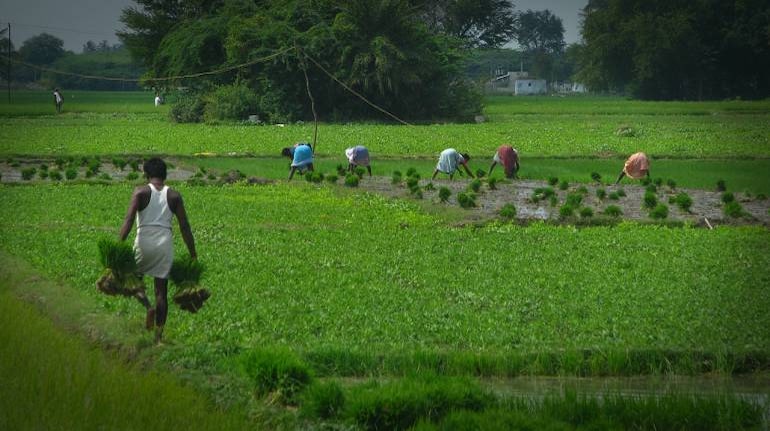



Investment in agricultural research and development (R&D) pays back many times over in increased production or reduced losses, as well as higher incomes. It requires a higher outlay in this year’s budget.
Let me illustrate the multiplier effect of R&D with two examples. For about a decade until this year, Co 0238 was the preferred sugarcane variety for farmers in North India. It was developed at two sugarcane breeding centres of the Indian Council of Agricultural Research (ICAR), between 1997 and 2009. The cost, according to Bakshi Ram, its developer, was Rs 347 crore at 2020 prices. That was the budget of the two institutes for those years. It was commercialised in 2009. Between then and 2020, it covered 53 percent of the cane area in five northern states, including Uttar Pradesh and Bihar. It has more sugar and is higher yielding. Ram estimates the additional revenue generated by the variety at Rs 67,010 crore.
Pusa Basmati varieties developed at the Indian Agricultural Research Institute (IARI), Delhi, also known as Pusa Institute, also make the same case. It may surprise us to know that there was a time when farmers found common rice more profitable and were shifting out of traditional basmati. To reverse the trend, basmati had to be high yielding without losing any of its characteristics. That variety, Pusa Basmati 1, released in 1989, took 24 years to develop. A semi-dwarf variety, 40 cm shorter than traditional basmati, it was much sought after. Fourteen years later, in 2003, IARI released PB 1121. Basmati is among India’s top agricultural exports. Between 2010 and 2016, PB 1121 covered 68 percent of the country’s basmati area. IARI estimates its traded value for those years at Rs 1.5 trillion. Since then, newer versions with shorter maturity time, resistance to bacterial blight and blast or herbicide tolerance, have been developed in a shorter period with modern breeding technology.
Beyond YieldsWe need research not only to boost yields but also to protect them from pests, pathogens and adverse weather. The sugarcane variety mentioned above has been knocked off its perch this year because it has become susceptible to an infectious fungal disease.
With Bt cotton, India was able to reverse the trend of falling yields and output in cotton, rising costs and dependence on imports. Bt cotton has a gene from soil bacteria that is toxic to boll boring worms. The Bt protein in itself is not yield boosting. But by assuring farmers that their investment in hybrid cottonseed, fertiliser and crop protection chemicals will not be ravaged by bollworms, it has got them to expand the area under Bt cotton and lavish attention to it.
With India poised to become the most populous country next year and remain so for many years, we need scientific solutions to meet the growing need of food, feed, fibre and biofuels. And we need to do so with crops that are resilient to aberrant weather events, which are becoming more frequent. They should also use less land, water, fertiliser and crop protection chemicals.
Why R&D is CriticalDeepak Pental, former vice-chancellor of Delhi University (DU), says the objectives of agricultural R&D are crop diversification (from rice and wheat to maize, millets, pulses and oilseeds); crop rotation (for soil health and pest management); cultivation with no or minimal soil disturbance (to conserve water, improve soil health and avert tractor emissions); and doubling the productivity of livestock and crops.
Pental led the DU team of scientists that developed a genetically-modified mustard hybrid, which the government approved for seed production in October. He says Indian research is lagging in creating pest and pathogen resistance in crops. This is an area that needs continuous research. He cites Covid-19 as an example of the race that exists between pests and hosts to outsmart each other.
The global trend, says Pental, is to create inbuilt resistance in plants against pests with proteins that are toxic to them, in order to minimise the use of chemicals. The other trend is to make crop plants tolerant to weedicides. This makes minimally invasive and regenerative agriculture possible. We need to breed rice varieties that can be grown without stagnant water; wheat that can tolerate warmer temperatures during the grain-filling stage in March; and flood-tolerant maize and soybean.
We also need to make soil microbes work for us. AK Singh, Director, IARI, says that although 60 percent of nitrogen applied to the wheat crop is wasted, it is replenished in wheat grain and straw. He attributes the replenishment to soil microbes. Biologics are a new and emerging field. Bayer, a plant traits and agrochemicals major, says it has 125,000 microbial strains and has commercialised about 20 products based on them.
Singh wants spending on R&D to be increased from the current level of 0.4 percent of agricultural GDP to at least 1 percent. There are other things that are needed as well, such as respect for intellectual property, focused research, and more and better trained scientists. But raising the outlay for Research and Development would be the first step.
Vivian Fernandes is a senior business journalist with more than three decades of experience. Views are personal, and do not represent the stand of this publication.Discover the latest Business News, Sensex, and Nifty updates. Obtain Personal Finance insights, tax queries, and expert opinions on Moneycontrol or download the Moneycontrol App to stay updated!
Find the best of Al News in one place, specially curated for you every weekend.
Stay on top of the latest tech trends and biggest startup news.